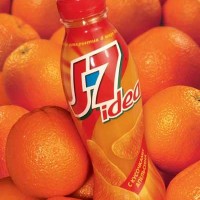PepsiCo buys majority stake in Russia’s milkman Wimm-Bill-Dann
In Russia, WBD ranks number one in dairy (28 percent) and in baby food (26 percent) and number two in juice (22 percent). It has been listed on the New York stock exchange since 2003. With a turnover of about USD 2.5 billion, it has a market capitalisation of USD 3.4 billion.
PepsiCo had considered buying WBD for years and was able to pursue a deal after France’s Danone agreed to sell its 18 percent stake in WBD in August. Danone divested the holding to address antitrust concerns in Russia after buying another dairy company in the country.
PepsiCo will buy 66 percent of Wimm-Bill-Dann and plans to make an offer for the rest subject to government approvals, with a deal for the entire company likely to be locked in by the end of the second quarter, PepsiCo Chief Financial Officer Hugh Johnston said.
The deal is PepsiCo’s largest yet to bolster its Russian beverage business, following the 2008 purchase of a majority stake in OAO Lebedyansky, the country’s biggest juice maker. The move is also PepsiCo’s first venture into dairy products. Moreover, it turns Russia into PepsiCo’s biggest international market.
The rationale for this acquisition is that it makes PepsiCo less dependent on the U.S. market. If managed well, WBD will provide PepsiCo with much sought after growth and help close the gap to The Coca-Cola Company, which still ranks as the world’s number one soft drinks producer.
Including assumed debt, PepsiCo is paying 19.8 times historic EBITDA it was reported. The median multiple for similar deals since 2001 is 9.66 times EBITDA.
Based on WBD’s projected 2010 EBITDA, the multiple is 16.4 times, according to PepsiCo.
In 2009, PepsiCo and WBD together had 42 percent of Russian juice sales by volume, according to data from Euromonitor. Coca-Cola Hellenic Bottling Co. and Nidan held a 35 percent share. Coca-Cola purchased a controlling stake in Nidan this year.
The five entrepreneurs who founded WBD introduced a new product—Western-style juice—to the Russian market when they took a USD 50,000 loan and leased a production line in a dairy plant in Moscow. They then took over the whole plant and a string of juice plants around Russia.
In the 1990s, WBD also invested in four breweries in Russia, which were handed over to the specially created Central European Brewery Company in 2001. In 2004, Heineken acquired the remaining two breweries of CEBC.
In a sense, WBD’s major shareholders could qualify as success stories of Russian reform. These entrepreneurs were neither industry nor government
insiders, yet they converted Soviet manufacturing enterprises into thriving modern capitalist firms.
Before the sale to PepsiCo, WBD’s founders owned 40.9 percent in WBD’s charter capital.


